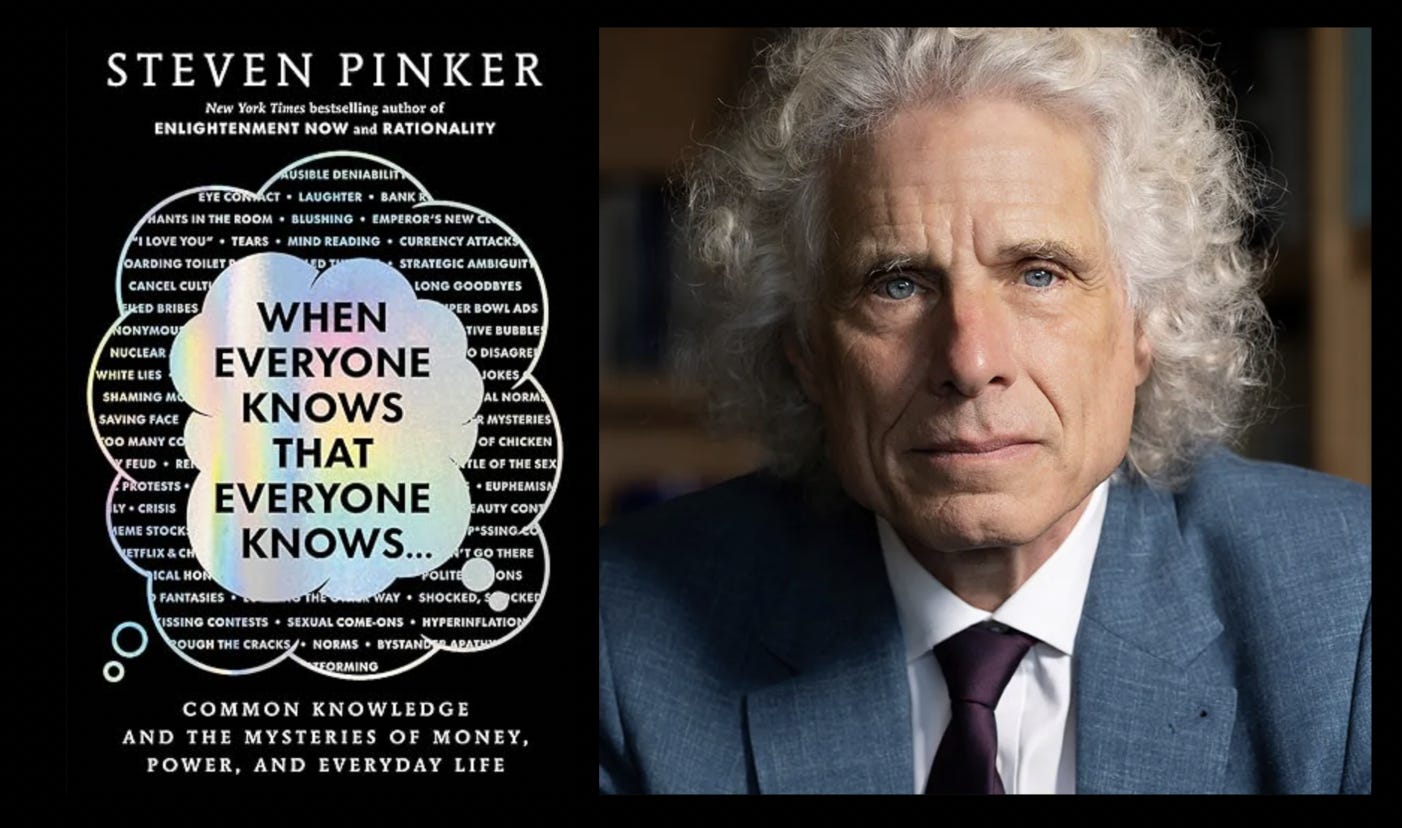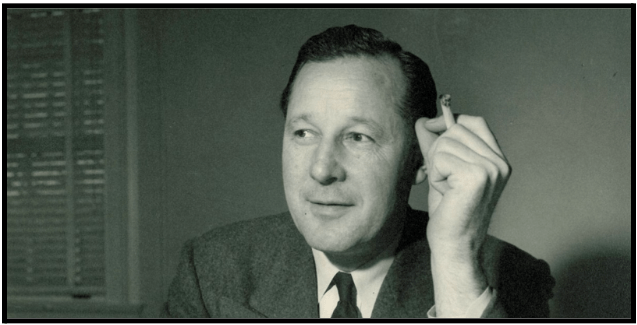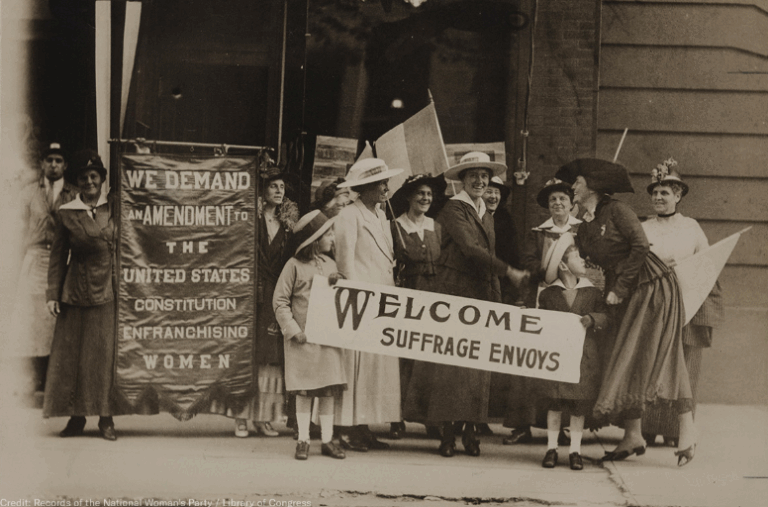Talking Big Ideas.
“No man can put a chain about the ankle of his fellow man, without at last finding the other end of it fastened about his own neck. The lesson of all the ages on this point is, that a wrong done to one man, is a wrong done to all men.”
~ Frederick Douglass, This Decision Has Humbled the Nation, 22 October 1883
A Stranger in a Strange Land
Leonard Read is one of my favorite philosophers. Today is his 127th birthday, and I’m confident that if he were still alive, he’d appreciate the challenge I have for you.
Let’s begin with a quick thought experiment: when’s a time you felt like a stranger in a strange land?
I will never forget the moment Maryrose, her dad, and I first arrived in the South American port city Valparaíso. The cabbie spoke no English and we spoke no Spanish. He drove us from the bus depot into the hills, twisting through winding streets, and down a passage that ended near the Pacific Ocean. We could see the waves, smell the salt, and feel the breeze as we unloaded our bags. We paid the driver and watched as he eased his car backward down the narrow alley until he disappeared.
A new city, on a new continent, and no guide but ourselves.
Then I saw it: one bag missing. The one with my laptop, my journals, my passport. My passport! I left it in the cab. My heart sank. I bolted down the street, but the car was gone.
I stopped and stood there, five thousand miles from home, empty-handed, desperate. The locals outside stared at me, puzzled. I was stranded in a strange land.
Everything Feels Alien
Finding yourself immersed in a foreign culture can be disorienting. The British writer Dan Williams captured this strangeness on Substack this week after watching the Charlie Kirk memorial:
Everything about it feels alien — the aesthetics, symbolism, music, rituals, mythology, gurus, ideas, and norms. It feels like being exposed to the cultural and symbolic universe of a distant tribe.
For an atheist Cambridge philosopher, the Christian conservative movement in America must feel worlds away. Williams continued:
If I reflect on this, it occurs to me that this feeling must be symmetrical — that they must view the kind of cultural universe I inhabit as similarly alien. And in a strange way, despite opposing almost everything about this political project, this reflection makes me feel more empathy for what that project must feel like from the inside.
I love this! It’s fine, even important, to admit when a culture feels strange to us. The crucial insight is to realize we look just as strange to them.
Our Weirdness as Common Knowledge
We can remind ourselves:
If their world feels strange to me, then my world likely feels just as strange to them.
This is the spirit of Steven Pinker’s new book, When Everyone Knows What Everyone Knows…. Flourishing societies require what Pinker calls “common knowledge.” It’s not just that I see you as weird, but that you know I see you as weird – and I know that you know I see you as weird. And so on.

It’s one thing to think, “their world looks bizarre to me.” It’s another to realize, “and mine looks just as bizarre to them, and we both know it.” That shift doesn’t erase differences, but it changes the dynamic. Alienation and hostility loosen their grip.
We can coordinate, coexist, even cooperate — not because we agree, but because our mutual knowing makes trust possible. Caricature can give way to compassion.
Undivide Us
The past two weeks have driven home how divided we are in America. Was Charlie Kirk a terrible person, or an incredible one? How about Jimmy Kimmel? The clips we watch and feeds we scroll help shape our opinions. They place us in different worlds and drive us further apart.
My friends Ben, Tony, and Kristi made a beautiful documentary called Undivide Us. They traveled the country bringing everyday Americans together, including the far left and far right, showing how common knowledge can transform animosity into calm respect:
We don’t need to agree on music, mythology, or even morality to share a civic space. What we need is the will to treat each other with respect despite our strangeness.
We Can Always Choose Respect
We can respect people who are strange to us.
I stood in that Chilean alley, dumbfounded and helpless. Then I saw a man running toward me. It was our cab driver! He found my bag in his car and worked his way back through the streets to return it.
My heart swelled. I hugged him like an old friend. I tried giving him everything I had in my wallet. He refused. He just smiled at me. The locals on the sidewalk smiled too. I no longer felt alien.
We can even choose to respect people when they treat us terribly.
That’s why Erika Kirk’s message at her husband’s memorial was so striking. To forgive your spouse’s assassin is almost unthinkable. Yet she showed that even across vast divides, the choice to treat others with respect is still ours to make.
Embrace Your Inner Leonard
Which brings me to Leonard Read. He was the founder of the Foundation for Economic Education, and he lived by a profound principle of pluralism: treat every person as you would treat the Lord.
Read got a hate-filled letter from a man named William Benz, who despised Read and his libertarian philosophy. Benz was shocked to receive a warm, respectful reply! Benz sent a second letter in a softer tone, and a correspondence began. Then a friendship. One day, Read received this letter:
Dear Mr. Read,
I never thought it would happen to me. I bought a new car and was on the highway. I had a head-on collision. I’ve been in the hospital for the past three months as they try to splice me back together again.
But, Mr. Read, you should see the interest my three doctors are showing in our philosophy.
Sincerely yours,
William Benz
Our philosophy.
My challenge to you is simple, but hard: embrace your inner Leonard Read this weekend.

Test it out. You don’t have to agree with disagreeable people. You have to see your shared humanity in all its strangeness. When you meet someone odd, infuriating, or wrong, give them respect. And when hatred would be easier, follow Erika Kirk’s lead: choose love, choose forgiveness.
That’s it.
Remember: You are weird too. And despite our mutual weirdness, we can treat each other with respect.




